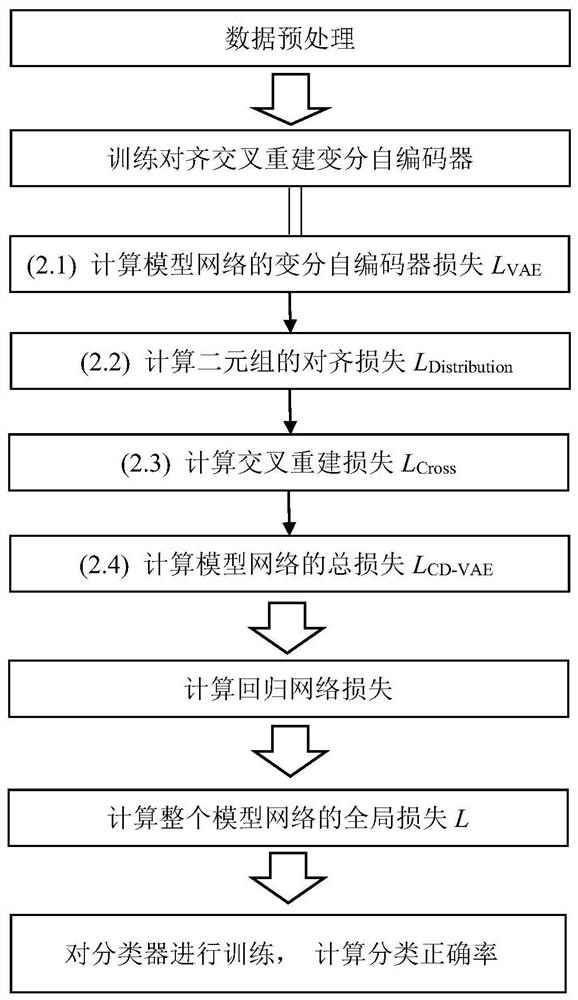Zero-shot Image Classification Method Based on Regression Variational Autoencoder
A technology of self-encoder and sample image, which is applied in neural learning methods, instruments, computer components, etc.
- Summary
- Abstract
- Description
- Claims
- Application Information
AI Technical Summary
Problems solved by technology
Method used
Image
Examples
Embodiment
[0074] The first step, data preprocessing:
[0075] When solving the generalized zero-sample image classification problem, a part of the known class data set in the database is used as a training set, and the other part and an unknown class data set are used as a test set, and the data used include known class image features v seen Data and known class semantic features c seen data, and unknown class image features v unseen Data and Unknown Class Semantic Features c unseen Data, this embodiment is tested on 4 data sets, namely AWA1, AWA2, CUB and SUN, all data are from the document "Zero-Shot Learning-A Comprehensive Evaluation of the Good, the Bad and the Ugly" published Available data, all image features come from the 2048-dimensional final pooling layer of the well-known residual network ResNet-101, and use manual labeling attribute information as semantic features to complete data preprocessing;
[0076] In the second step, train the aligned cross reconstruction variati...
PUM
 Login to View More
Login to View More Abstract
Description
Claims
Application Information
 Login to View More
Login to View More - R&D
- Intellectual Property
- Life Sciences
- Materials
- Tech Scout
- Unparalleled Data Quality
- Higher Quality Content
- 60% Fewer Hallucinations
Browse by: Latest US Patents, China's latest patents, Technical Efficacy Thesaurus, Application Domain, Technology Topic, Popular Technical Reports.
© 2025 PatSnap. All rights reserved.Legal|Privacy policy|Modern Slavery Act Transparency Statement|Sitemap|About US| Contact US: help@patsnap.com



